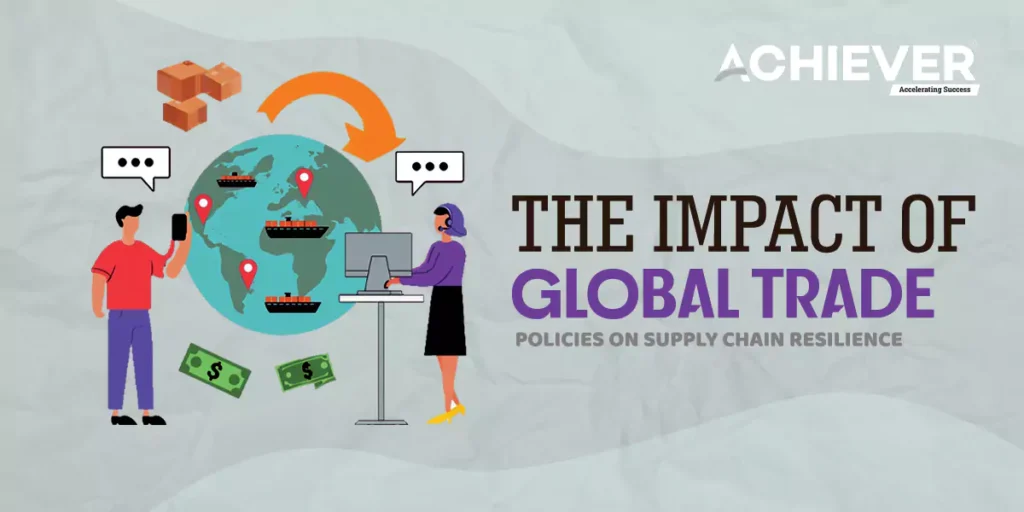In recent years, global trade policies have undergone significant transformations, driven by shifting geopolitical landscapes, economic pressures, and a growing emphasis on national security. As these policies evolve, they profoundly impact supply chains worldwide, influencing their resilience, flexibility, and ability to respond to unforeseen disruptions. Understanding the implications of these changes is crucial for businesses aiming to navigate the complexities of the global market and maintain competitive advantage.
The Changing Landscape of Global Trade Policies
The past decade has seen a rise in protectionist measures, characterized by tariffs, import quotas, and trade agreements aimed at promoting domestic industries. The United States-China trade war, for instance, introduced tariffs on billions of dollars of goods, prompting companies to reassess their supply chains and sourcing strategies. These policies, while intended to protect local economies, can create ripple effects throughout global supply chains, leading to increased costs and uncertainty.
Furthermore, geopolitical tensions, such as those arising from Brexit and conflicts in Eastern Europe, have resulted in trade policy shifts that complicate cross-border trade. Businesses that rely on seamless international logistics must adapt quickly to these changes, often at significant cost. The unpredictability associated with trade policies necessitates a strategic reevaluation of supply chain operations to enhance resilience.
Supply Chain Resilience: Definition and Importance
Supply chain resilience refers to the ability of a supply chain to anticipate, prepare for, respond to, and recover from disruptions. Resilient supply chains can withstand shocks and continue to operate efficiently, minimizing impacts on business operations and customer satisfaction. Given the increasing frequency of global disruptions—be it pandemics, natural disasters, or geopolitical conflicts—building resilience has become a top priority for organizations.
Resilient supply chains are characterized by their flexibility, diversity of suppliers, and ability to leverage technology for enhanced visibility and communication. Companies that invest in these areas can better navigate the complexities posed by global trade policies, ensuring continuity and efficiency in their operations.
Impacts of Trade Policies on Supply Chain Resilience
- Increased Costs and Price Volatility
Trade policies that impose tariffs and other trade barriers often lead to increased costs for imported goods. Companies may face higher prices for raw materials and components, which can erode profit margins. In response, organizations may need to adjust their pricing strategies, which can further complicate relationships with customers.
Moreover, price volatility resulting from changing trade policies can make it difficult for businesses to forecast expenses accurately. This unpredictability undermines supply chain resilience, as organizations struggle to maintain steady operations amidst fluctuating costs. Companies may need to diversify their supplier base and explore alternative sourcing strategies to mitigate these risks.
- Supplier Diversification and Localization
To enhance resilience in the face of uncertain trade policies, many businesses are shifting towards supplier diversification. By sourcing materials and components from multiple suppliers across different regions, companies can reduce dependence on any single source and minimize risks associated with geopolitical tensions or trade disputes.
Localization is another strategy gaining traction. Companies are increasingly investing in domestic suppliers or near-shoring operations to mitigate the impact of tariffs and trade barriers. While this approach can lead to higher production costs, the trade-off may be worth it in terms of reduced vulnerability to external shocks.
- Enhanced Technology Adoption
The uncertainty brought about by evolving trade policies has accelerated the adoption of technology in supply chain management. Businesses are leveraging advanced analytics, artificial intelligence, and blockchain technology to gain real-time visibility into their supply chains. This increased transparency enables organizations to make informed decisions quickly, respond to disruptions, and collaborate effectively with suppliers.
For example, predictive analytics can help businesses identify potential disruptions in their supply chains and adjust sourcing strategies accordingly. Furthermore, blockchain technology can enhance traceability, allowing organizations to track products from origin to destination, ensuring compliance with trade regulations and fostering trust among stakeholders.
- Regulatory Compliance and Risk Management
Navigating the complexities of global trade policies requires organizations to remain compliant with various regulations. Non-compliance can result in hefty fines and reputational damage. Therefore, businesses must invest in robust compliance programs and risk management frameworks to monitor changes in trade policies actively.
This proactive approach can enhance supply chain resilience by enabling organizations to anticipate regulatory changes and adapt their operations accordingly. Businesses that prioritize compliance are better positioned to withstand disruptions and maintain smooth operations, even amidst evolving trade landscapes.
Conclusion
The impact of global trade policies on supply chain resilience is profound and multifaceted. As businesses navigate the complexities of an increasingly unpredictable global landscape, investing in resilience becomes essential. By diversifying suppliers, adopting advanced technologies, and prioritizing regulatory compliance, organizations can enhance their ability to withstand disruptions and thrive in a competitive market.
Ultimately, supply chain resilience is not just a response to external challenges; it is a strategic imperative that enables businesses to adapt and flourish in the face of uncertainty. As global trade policies continue to evolve, companies that proactively embrace resilience will be better equipped to navigate the complexities of the global market and emerge stronger in the long run.







